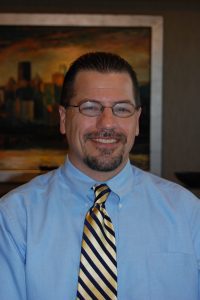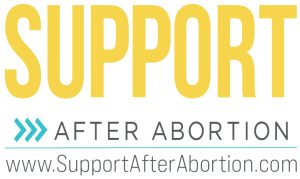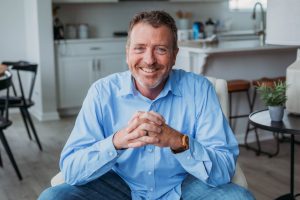By Nathan Misiran, COO of Support After Abortion, Special to the Florida Catholic
Unsurprisingly, 80 percent of people who seek counseling are females. Greg Hasek, a licensed counselor with more than 20 years of experience, lightly shares that the 20 percent of men who go to counseling are being dragged in by their wives. Most men will tell you that counseling is the very last thing they want to do with their time and will only go if they are in a most precarious situation, usually when their own lives or marriages are hanging in the balance.
 Those are the situations that Greg Hasek specializes in, most specifically in situations where men are dealing with addictions, past trauma or PTSD. But Hasek has another specialization: how abortion affects men and those roots run deep. Almost always, men aren’t coming to him for help with the aftermath of abortion. They are seeking him out because of an addiction that has nearly destroyed their lives.
Those are the situations that Greg Hasek specializes in, most specifically in situations where men are dealing with addictions, past trauma or PTSD. But Hasek has another specialization: how abortion affects men and those roots run deep. Almost always, men aren’t coming to him for help with the aftermath of abortion. They are seeking him out because of an addiction that has nearly destroyed their lives.
From a counselor’s perspective, finding men who have been harmed by an abortion decision is no easy task. They are not walking into pregnancy centers asking for help. They are not walking into the offices of mental health professionals asking for help to overcome their intense feelings about the abortion, but these men exist in droves.
Think about it: there are nearly one million abortions that happen in the United States alone every year. Even if only a small percentage of the fathers are suffering negative effects from the abortion, that is still a large number.
What does abortion have to do with addictions? They are sometimes a root cause, or they have made the addiction or behavior infinitely worse as the man tries to numb the pain of the abortion decision.
There are many reasons why men won’t seek counseling, much less deal with the pain from an abortion. The two biggest ones, according to Hasek are these:
- Our culture hardly ever validates men for the trauma they’ve experienced. The exception would be for war-related PTSD and trauma. But abortion trauma? Not a chance. Men shouldn’t hurt from abortion, our culture says, it’s a woman’s issue.
- Men have been conditioned since an early age to suppress feelings and not show emotion. Crying is out of the question. Showing weakness is frowned upon. This doesn’t mean the feelings aren’t there; it just means that men have had to find other outlets, including unhealthy ones, to release pent up emotions.
As a licensed clinician, Greg helps men heal from not only their addictions and unhealthy behaviors and PTSD, but also from the trauma caused by the abortion experience.

Remember that rock thrown into the calm lake? When a man experiences trauma from an abortion, the effects are felt far beyond his own life. His detachment from his partner and his children is very real and very powerful. When his partner was inside the abortion clinic, he felt a double hit to his natural instinct to protect her and to protect his child, that fight response. When he looks at her, he feels like he let her down. He feels like he let his child down. Those failures may predispose him to delve deeper into his addictions, no matter what they may be, and drive him away from his partner and family.
The good news is that there are resources for men hurting from abortion. They need not suffer alone. Support After Abortion is hosting experts like Greg Hasek at their “Unraveling the Roots of Men’s Trauma” free online men’s conference on October 16, 2021 from 9 a.m. to 4 p.m. Register now at www.MenHealingFromTrauma.com. Those who participate in the live presentation can ask questions of the presenters.
Have another commitment that day? Register now and have access to the videos later. Many additional videos of Greg Hasek and others are already available at www.SupportAfterAbortion.com.






 While others saw a charming, funny, life of the party, inside Greg was depressed, lost and scared. This feeling of isolation began to impact not only his mental health, but also his relationships as well. After years of running from the pain and shame after abuse and abortion Greg knew he needed help, but did not know where to start or where to go to find healing.
While others saw a charming, funny, life of the party, inside Greg was depressed, lost and scared. This feeling of isolation began to impact not only his mental health, but also his relationships as well. After years of running from the pain and shame after abuse and abortion Greg knew he needed help, but did not know where to start or where to go to find healing.